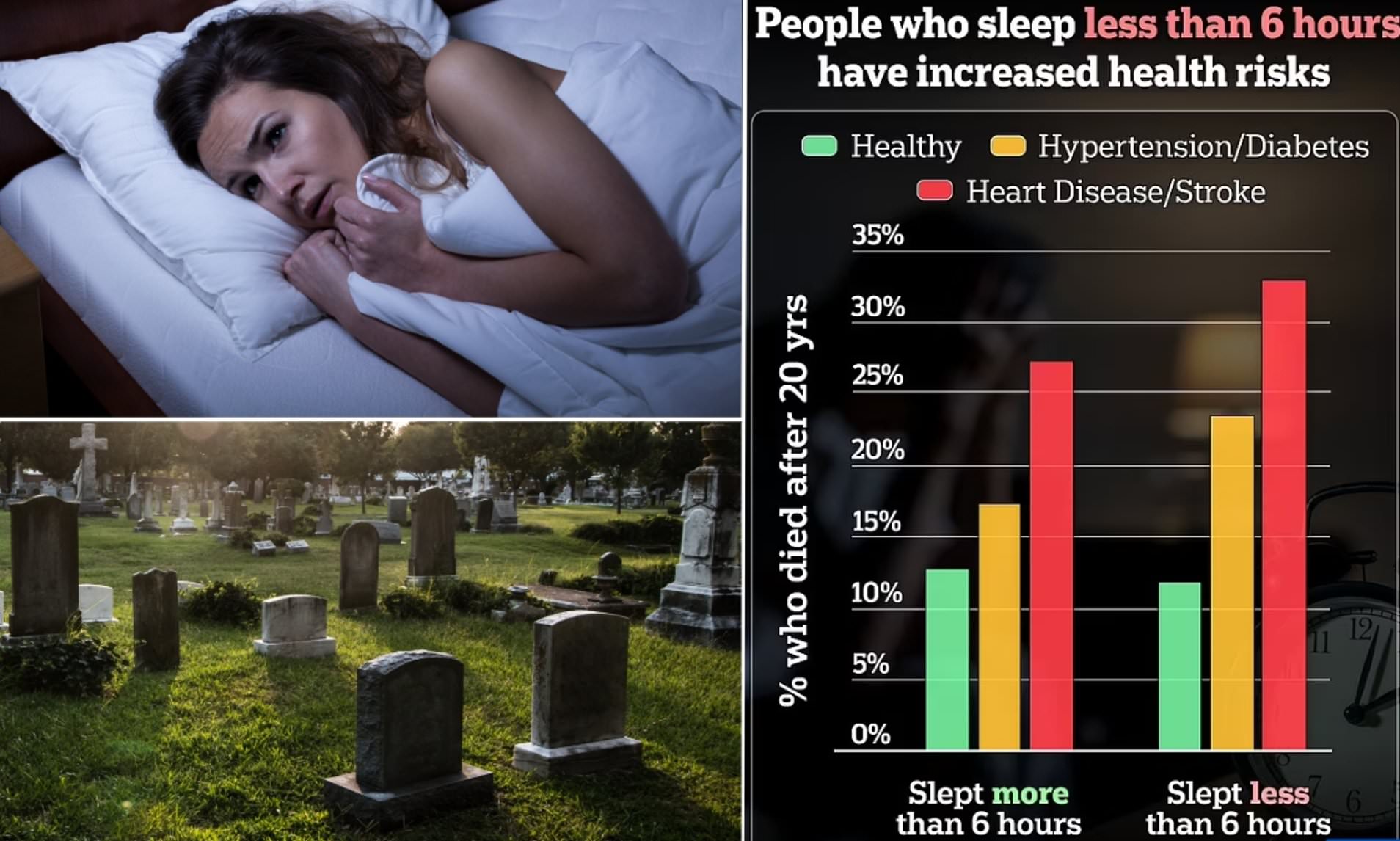The sleep issue that triples early death risk - are you at risk?

The Link Between Nightmares and Early Death
A groundbreaking study has revealed a surprising connection between frequent nightmares and an increased risk of early death. According to the research, individuals who experience weekly nightmares are three times more likely to die before the age of 70 compared to those without such disturbances. This risk surpasses that of traditional health risks like smoking, obesity, poor diet, and lack of physical activity.
The study, conducted by researchers at Imperial College London and the Dementia Research Institute in London, analyzed data from 2,429 children aged eight to 10 and 183,012 adults aged 26 to 86 over a period of 19 years. For adults, nightmare frequency was self-reported at the beginning of the study, while children's nightmares were reported by their parents. The findings were presented at the European Academy of Neurology (EAN) Congress 2025 on June 23.
Biological Aging and Stress
One of the key factors linking nightmares to early death is the impact on biological aging. Children and adults with frequent nightmares showed faster biological aging, which accounted for about 40% of the explanation for the increased risk of early death. Even monthly nightmares were associated with accelerated aging and higher mortality rates compared to those who rarely or never experienced them.
Dr. Abidemi Otaiku, a brain science research fellow at Imperial College London and lead researcher, explained that the stress caused by nightmares can be more intense than waking experiences. "Our sleeping brains cannot distinguish dreams from reality," he said. "That’s why nightmares often wake us up sweating, gasping for breath, and with our hearts pounding—because our fight-or-flight response has been triggered."
Nightmares lead to prolonged elevations of cortisol, a stress hormone linked to faster cellular aging. They also disrupt sleep quality and duration, impairing the body's ability to repair itself and restore cells during the night.
Preventive Measures and Treatments
To reduce the occurrence of nightmares, Dr. Otaiku suggested several simple measures. These include avoiding scary movies, maintaining good sleep hygiene, managing stress, and seeking treatment for anxiety or depression. He also recommended image rehearsal therapy, a psychological treatment where individuals re-write and rehearse their nightmares into less frightening versions. This can be done from home and has shown promising results.
For those suffering from frequent night terrors that significantly affect their quality of life, consulting a sleep specialist may be beneficial. Dr. Otaiku highlighted cognitive behavioral therapy for insomnia (CBT-I), which has been shown to reduce nightmares and slow the aging of brain cells. This therapy aims to address underlying thoughts and behaviors that contribute to sleep problems.
Broader Implications of Sleep Disruption
The study adds to a growing body of research highlighting the importance of sleep quality. Recent studies have shown that a lack of sleep increases the risk of heart disease, obesity, and death by 83%, 82%, and 40%, respectively. However, this research is the first to establish nightmare frequency as a significant indicator of early death.
In addition to nightmares, other sleep-related issues have been linked to health risks. A separate study found that daytime napping, particularly in the early afternoon, was associated with a higher risk of early death. The study, which tracked the sleep habits of over 86,000 healthy middle-aged adults, found that frequent nappers had up to a 20% higher risk of premature death.
Experts suggest that daytime sleepiness could be a warning sign of disrupted or poor-quality nighttime rest, potentially pointing to underlying health issues such as sleep disorders, dementia, or heart failure. Professor James Rowley, from Rush University Medical Center in Chicago, emphasized the importance of doctors asking patients about napping habits. "If a doctor asks about a patient's sleep habits, they should also be asking about napping," he said.
Conclusion
The findings underscore the critical role of sleep in overall health and longevity. As research continues to uncover the complex connections between sleep patterns and health outcomes, it becomes increasingly clear that addressing sleep disturbances, such as nightmares, is essential for maintaining well-being. By understanding and managing these issues, individuals can take proactive steps toward a healthier, longer life.

Posting Komentar untuk "The sleep issue that triples early death risk - are you at risk?"